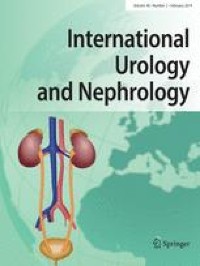ofeliaespinosa
Erectile Dysfunction: Understanding Causes, Results, And Treatment Choices
Erectile dysfunction (ED), generally referred to as impotence, is a condition characterized by the inability to attain or maintain an erection enough for passable sexual efficiency. It is a standard concern that affects males of all ages, though it is more prevalent among older men. The implications of ED prolong past physical well being, impacting emotional effectively-being, relationships, and general quality of life.
Overview of Erectile Dysfunction
Erectile dysfunction is commonly outlined as the persistent inability to achieve or maintain an erection for not less than three months. While occasional difficulties with erections are regular and may occur because of stress, fatigue, or alcohol consumption, chronic ED can indicate underlying well being problems. In keeping with the Massachusetts Male Aging Research, roughly 52% of males aged 40 to 70 experience a point of ED, with the prevalence growing with age.
Causes of Erectile Dysfunction
ED can end result from a variety of bodily and psychological factors. Understanding these causes is essential for efficient treatment.
Bodily Causes
- Cardiovascular Diseases: Circumstances comparable to atherosclerosis (hardening of the arteries) can restrict blood circulate to the penis, making it troublesome to attain an erection.
- Diabetes: Diabetes can injury nerves and blood vessels, resulting in ED. Men with diabetes are two to thrice extra more likely to experience erectile dysfunction.
- Hormonal Imbalances: Low testosterone levels can affect sexual operate. Circumstances like hypogonadism can result in decreased libido and ED.
- Neurological Disorders: Circumstances comparable to Parkinson’s illness, multiple sclerosis, and stroke can interfere with nerve signals from the mind to the penis.
- Chronic Sickness: Situations like kidney illness and liver disease can contribute to erectile dysfunction by affecting blood circulate and hormone levels.
- Medications: Certain medications, including these used to deal with excessive blood strain, depression, and prostate cancer, can have side effects that embody ED.
Psychological Causes
- Stress and Anxiety: Psychological stress from work, relationships, or financial issues can adversely affect sexual performance.
- Depression: This mental well being condition can lead to a lack of curiosity in intercourse and difficulties with erections.
- Performance Anxiety: Concern of not having the ability to carry out sexually can create a cycle of anxiety and additional impotence.
- Relationship Points: Poor communication, unresolved conflicts, or lack of intimacy with a companion can contribute to erectile dysfunction.
Diagnosis of Erectile Dysfunction
Diagnosing ED typically involves a comprehensive evaluation that includes a medical history, bodily examination, and probably laboratory exams. Physicians may assess factors equivalent to:
- Medical History: Information about earlier medical circumstances, surgeries, and medications.
- Physical Examination: A test for indicators of hormonal points, nerve harm, or circulatory issues.
- Laboratory Checks: Blood exams to verify testosterone levels, blood sugar ranges, and cholesterol levels.
In some circumstances, additional exams akin to penile ultrasound or nocturnal penile tumescence testing could also be carried out to evaluate blood flow and erections throughout sleep.
Treatment Choices
Treatment for erectile dysfunction is dependent upon the underlying cause and may embrace life-style changes, medications, therapy, and other interventions.

Lifestyle Modifications
- Weight loss plan and Train: A wholesome weight loss program and common physical exercise can improve general health and blood move, doubtlessly alleviating ED signs.
- Weight Management: Sustaining a healthy weight can cut back the risk of situations that contribute to ED, reminiscent of diabetes and coronary heart disease.
- Quitting Smoking and Limiting Alcohol: Smoking and excessive alcohol consumption can impair blood circulate and lead to ED.
Medications
Several medications are commonly prescribed to deal with erectile dysfunction. These include:
- Phosphodiesterase Type 5 Inhibitors (PDE5i): Medications reminiscent of sildenafil (Viagra), tadalafil (Cialis), and vardenafil (Levitra) enhance blood circulate to the penis and are efficient for many males.
- Hormonal Therapy: For men with low testosterone ranges, hormone alternative therapy could also be an possibility.
Psychological Therapy
Counseling or therapy can be helpful, significantly if psychological elements contribute to ED. Cognitive-behavioral therapy (CBT) or intercourse therapy may also help handle anxiety, depression, and relationship issues.
Other Interventions
- Vacuum Erection Units: These devices create a vacuum around the penis, drawing blood into it and facilitating an erection.
- Penile Implants: Surgical options, reminiscent of inflatable or malleable penile implants, may be considered for males who do not respond to other treatments.
- Injections: Medications could be injected directly into the penis to induce an erection.
Impact on High quality of Life
Erectile dysfunction can considerably impression a man’s quality of life. It may well lead to feelings of embarrassment, decreased self-esteem, and strain on relationships. Companions may additionally expertise emotional distress as a result of condition. Open communication between partners and searching for skilled assist can facilitate understanding and support.
Conclusion
Erectile dysfunction is a standard condition with varied bodily and psychological causes. Understanding the elements contributing to ED is crucial for effective treatment. With a range of treatment choices obtainable, including lifestyle changes, medications, therapy, and surgical interventions, many males can find relief from this condition. If you loved this article and you would such as to obtain even more info pertaining to latest ed treatments kindly visit our page. Seeking help from healthcare professionals is essential for addressing ED and improving overall well-being and quality of life. Early intervention can lead to raised outcomes and help restore confidence in intimate relationships.
